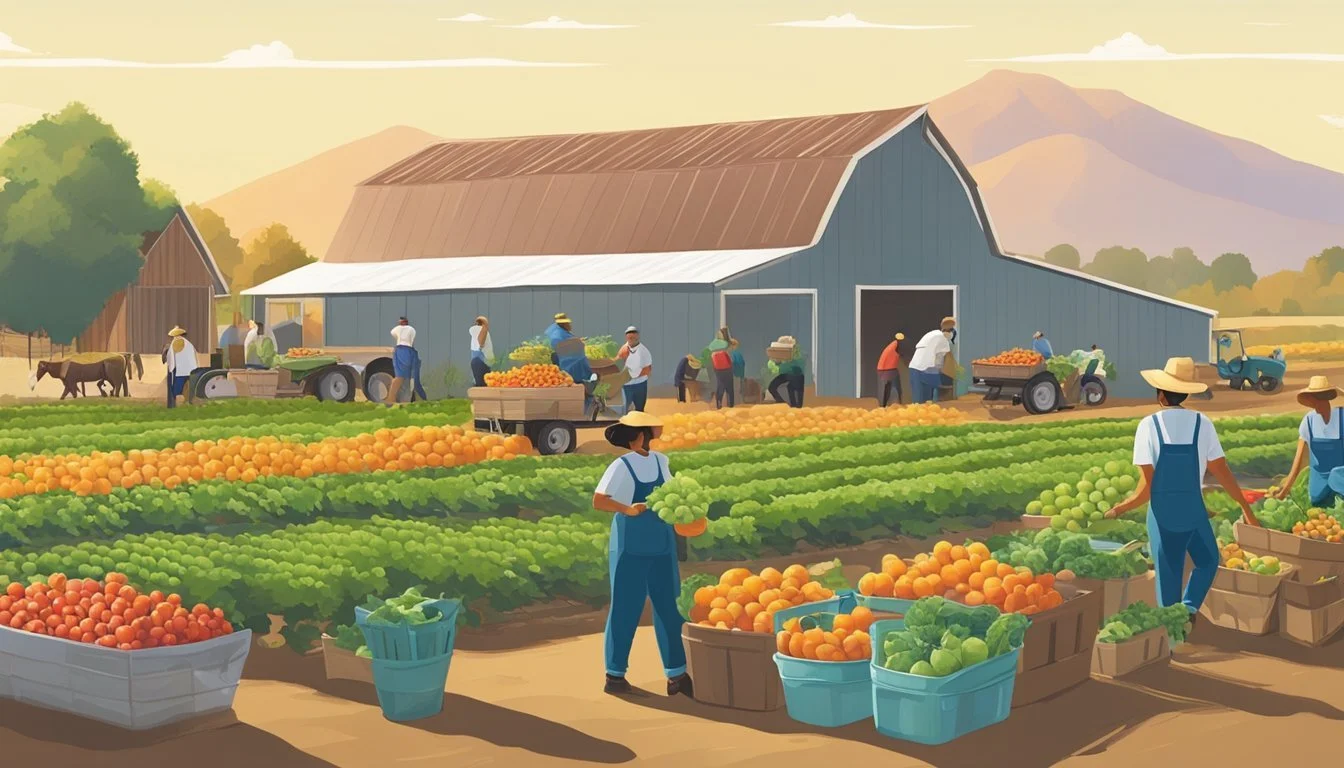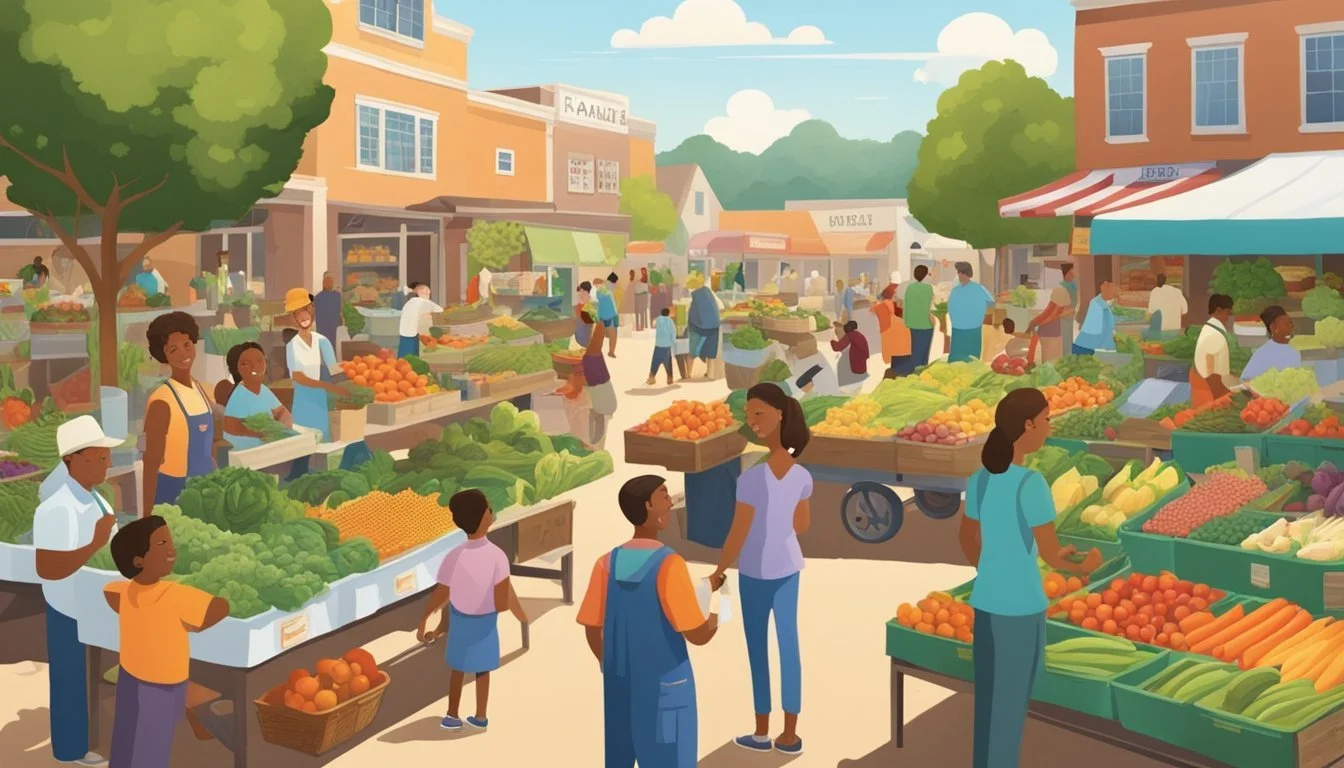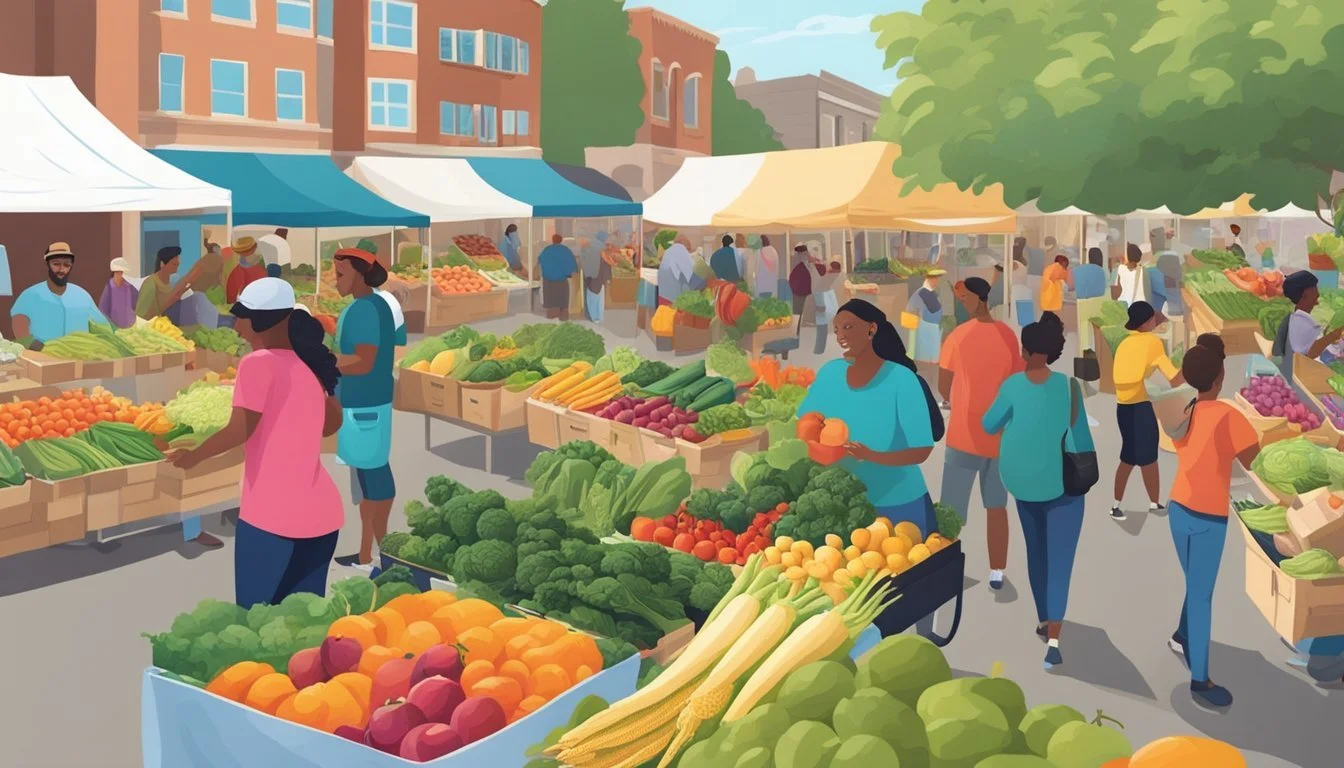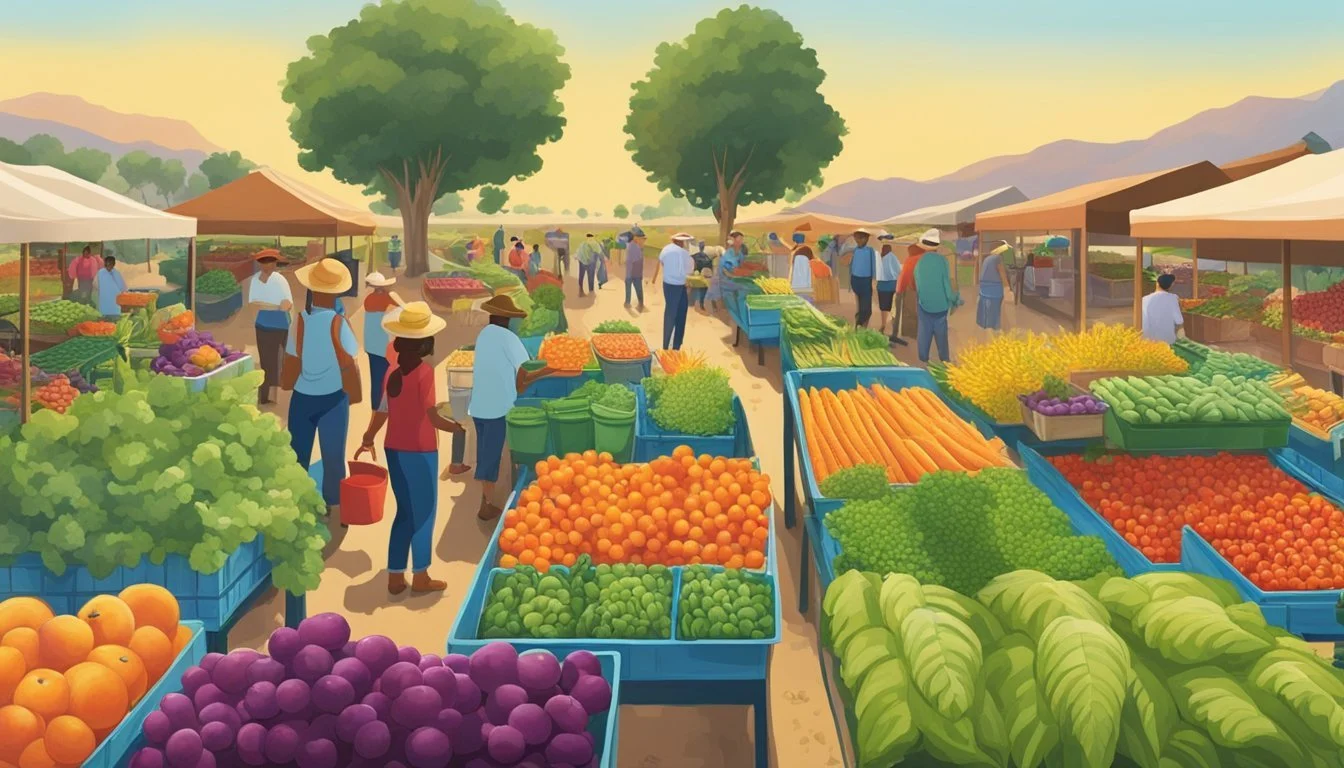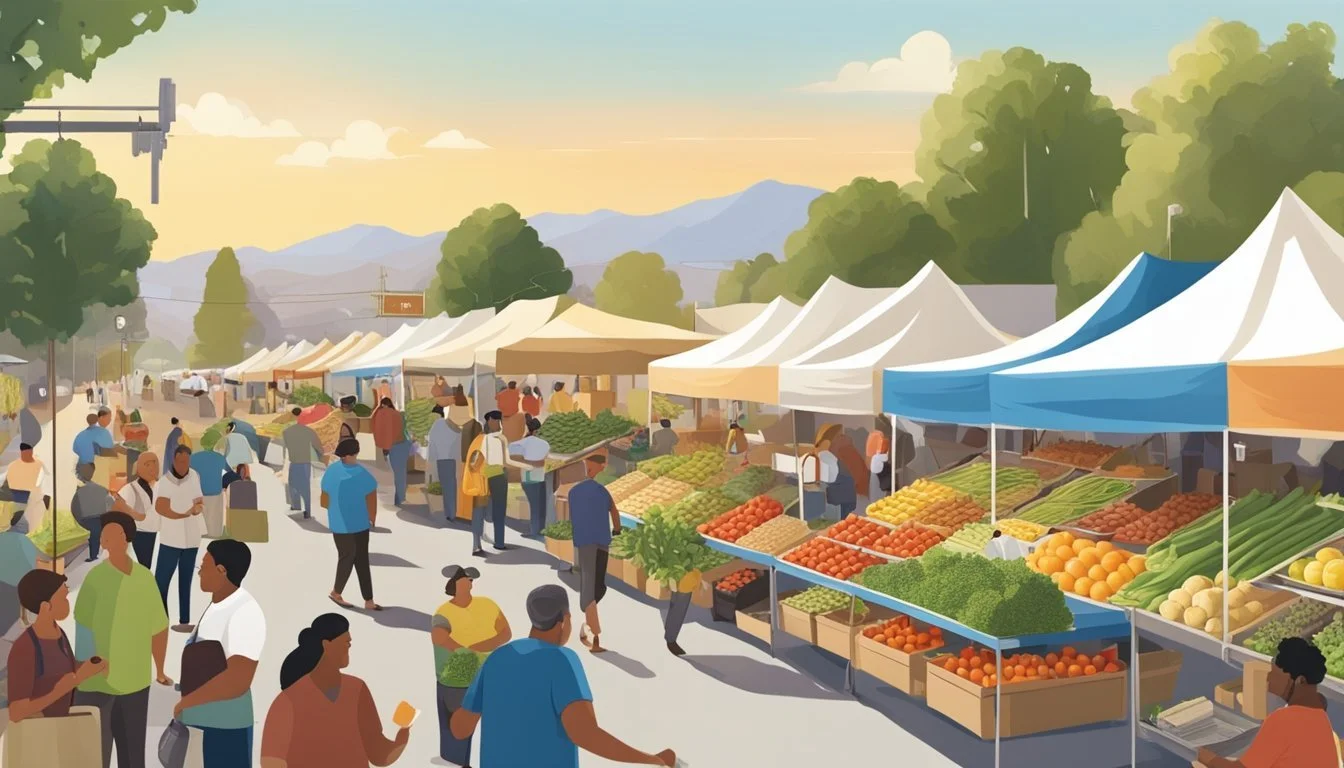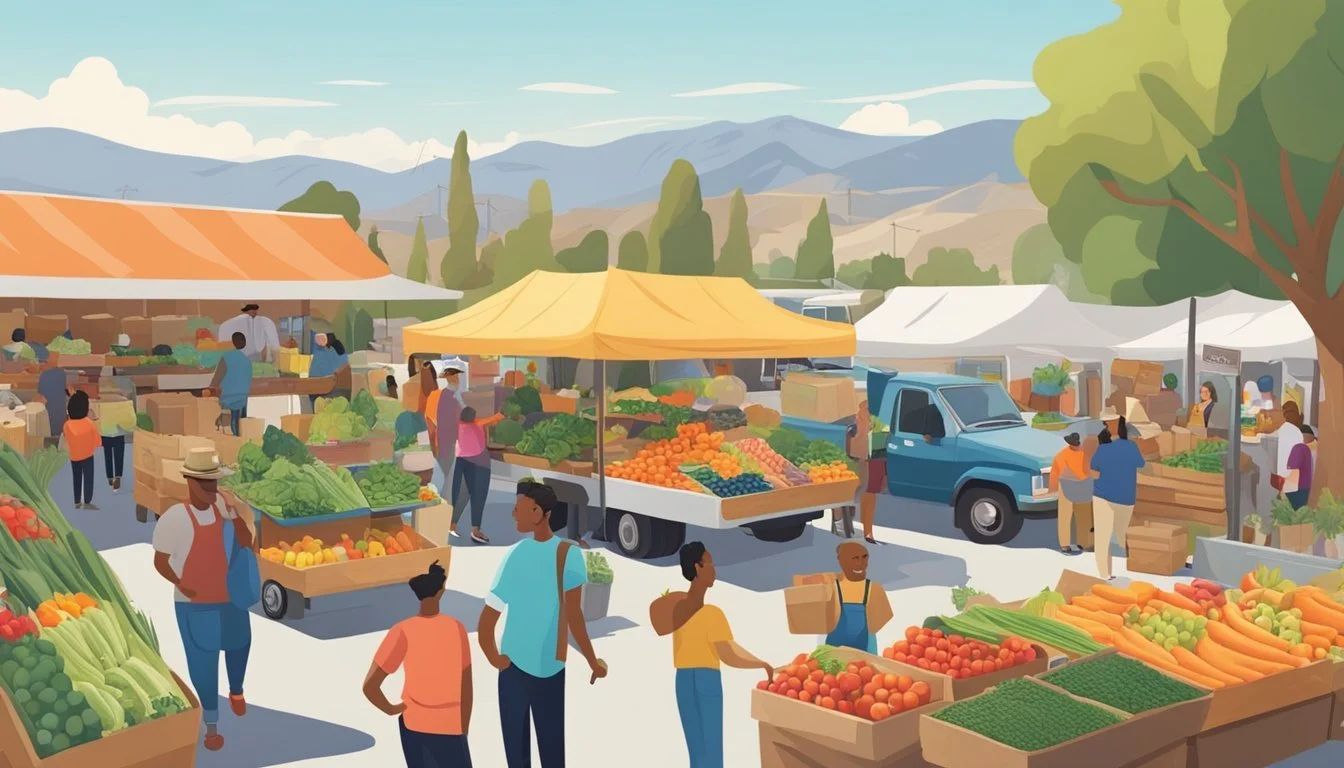Community Supported Agriculture (CSA) in Fontana, CA
A Guide to Local Farm Partnerships
Community Supported Agriculture, or CSA, has taken root in Fontana, California, offering residents a sustainable option to access fresh, locally grown produce. The concept of CSA is grounded in a partnership between farmers and consumers where individuals purchase shares or memberships from local farms. In return, they receive regular deliveries of a variety of seasonal produce. This model not only ensures fresh goods for consumers but also provides farmers with a reliable income source and a direct connection to their community.
In the city of Fontana, CSA programs are available, connecting residents with local agricultural endeavors. Initiatives like CSA reflect a growing commitment to sustainability and community health. These programs support local farms, reduce the carbon footprint associated with transport of goods, and promote the consumption of fresh, organic produce.
Fontana's proximity to agricultural hubs in the region means a variety of CSA options are within reach. Consumers can choose from several local farms offering CSA memberships that deliver a selection of fruits, vegetables, and sometimes additional farm products. Through participating in CSAs, Fontana locals are investing in their health, supporting sustainable farming practices, and strengthening their community's economy.
Understanding CSA
Community Supported Agriculture (CSA) represents a model where consumers buy shares of a farm's harvest in advance, creating a structured partnership between local farms and community members.
Defining CSA
Community Supported Agriculture (CSA) is a method for individuals to purchase a subscription, or share, directly from a local farm. As members, they pay a fee at the start of the growing season and in return, receive a regular delivery of fresh produce throughout the farming season.
Historical Development
The CSA model originated in the 1960s in Germany, Switzerland, and Japan as a response to concerns about food safety and the urbanization of agricultural land. It emerged in the United States in the 1980s and has since seen a steady growth, promoting more direct relationships between farmers and consumers.
CSA Structure
The structure of CSA revolves around a membership system. Consumers purchase their shares before the season begins, providing the farm with early-season capital. The shares typically include a variety of vegetables and may also contain fruits, eggs, dairy, and meat products, depending on the farm.
Typical CSA structure includes:
Pre-season payment
Regular (often weekly) delivery or pickup
A combination of produce depending on season and harvest
Benefits of CSA
The benefits of joining a CSA are multifaceted. They not only provide members with fresh, locally-sourced food but also strengthen local economies and support sustainable agriculture practices.
Advantages of CSA include:
Health: Access to fresh, nutrient-rich produce.
Economy: Supports local farmers and keeps money within the local community.
Sustainability: Encourages environmentally friendly farming practices.
Community: Fosters a sense of connection between consumers and food sources.
CSA in Fontana, CA
Community Supported Agriculture, or CSA, represents a growing movement in the Fontana, CA area, connecting residents directly with local farms for fresh, seasonal produce. This model fosters community ties and provides local farms the upfront support they need.
Local CSA Farms
Fontana boasts a network of local farms participating in CSA programs where members purchase shares for regular produce deliveries. These farms are hallmarks of sustainability and community engagement, often employing organic practices and offering an array of seasonal fruits and vegetables.
Three Sisters Farm
Located in the lush San Timoteo Canyon near Redlands, just a stone's throw from Fontana, Three Sisters Farm occupies 20 acres and has been certified organic since 2008. The farm features a unique straw bale home and cultivates crops on 2 acres. They offer produce through their CSA program and a local farmers market, ensuring that the community has access to fresh, organic options.
Huerta del Valle Community Garden
In nearby Ontario, CA, the Huerta del Valle Community Garden operates with a mission to provide organic, affordable food to the community while also teaching sustainable farming practices. Their CSA program supports this initiative, promoting local food consumption and enhancing the bond between the community and its food sources.
Rancho de los Proyectos
Positioned in the vicinity of Fontana, in Colton, CA, Rancho de los Proyectos serves as another vital part of the local food network. It exemplifies the dedication to fresh, community-supported agriculture and plays a significant role in the CSA landscape of the area. Residents seeking fresh provisions can become part of this farm's story through CSA participation.
Local farms in and around Fontana are at the heart of the CSA movement, rooted in community and sustainability. These farms not only serve their immediate locales but also reach out to neighboring areas, inviting a broader audience to partake in the richness of what their land has to offer.
Local Farming and Production
Local farming in Fontana, California, is anchored by small-scale producers who offer a diverse array of farm products through Community Supported Agriculture (CSA) programs. These programs link consumers directly to the farms, ensuring fresh, seasonal produce is accessible within the community.
Organic Practices
Three Sisters Farm, located in the nearby Redlands area, exemplifies dedication to organic farming methods. Certified organic since its inception in 2008, the farm employs sustainable practices, eschewing synthetic pesticides and fertilizers. Their commitment ensures that the vegetables and crops grown on their land meet strict organic standards.
Crop and Product Range
Vegetables: A variety of seasonal vegetables is the mainstay of local CSAs.
Fruit: Depending on the season, a selection of fruits complements the vegetable shares.
Eggs, Meat, Cheese, Honey: Some CSAs offer an expanded product range that includes farm-fresh eggs, locally-sourced meats, artisanal cheeses, and raw honey.
Fontana's local farms focus on a range that not only supports dietary staples but also enhances the culinary experience of its members with an assortment of farm products.
Seasonal Availability
Season Available Products Spring Tender greens, root vegetables, fresh herbs Summer Stone fruits, berries, summer squash Fall Hearty greens, apples, winter squash Winter Citrus, leafy greens, root vegetables
The CSAs operate on the natural growing cycle of the region, ensuring consumers receive the freshest, most flavorful produce throughout the year. Seasonal availability encourages eating habits that are in sync with the local environment.
Environmental and Health Impacts
Community Supported Agriculture (CSA) in Fontana, CA, has a distinct influence on both the environment and health of the community. By prioritizing provision of fresh, nutritious produce and advocating for sustainable practices, CSAs play a critical role in enhancing the local food system.
Nutrition and Freshness
CSAs offer seasonal and fresh produce to families, enhancing nutrition by providing food that is often picked at its peak of ripeness. This contributes to higher nutrient levels and better taste compared to produce that may be transported over long distances.
Freshness: Direct from farm to table, ensuring maximum nutrient retention.
Seasonal Diversity: Offering a range of produce that aligns with local growing seasons.
Supporting Local Economy
By sourcing food from local farmers, CSAs help to bolster the local economy. Consumers' payments go directly to these farmers, providing them with financial stability and the means to reinvest in their operations.
Economic Support: Ensuring that the community's expenditure remains within the locale.
Community Strengthening: Facilitating connections between farmers and consumers, fostering a sense of community.
Sustainability and Responsibility
CSAs embody sustainability and responsibility in food production and consumption. They encourage environmentally friendly practices and help reduce carbon footprint by minimizing transportation and packaging.
Lower Emissions: Reduced food miles from producer to consumer curtail the carbon dioxide emissions associated with transport.
Responsible Farming: Promotion of organic and other sustainable farming methods that benefit the environment.
Consumer Involvement
Community Supported Agriculture involves a commitment from consumers, offering mutual support and benefits to both members and farmers in Fontana, CA. This section explores how consumers actively participate in CSA models.
Membership and Support
Consumers in Fontana have the opportunity to become CSA members, providing crucial support to local agriculture. Membership usually requires purchasing a "share" at the beginning of the growing season, which includes:
Weekly deliveries of fresh produce
A financial commitment that supports farm operations
Through this system, members enjoy regular access to locally-grown food while directly contributing to the farm's financial stability.
Building Relationships
Membership in a CSA fosters a relationship between consumers and farmers that extends beyond simple transactional exchanges. Consumers and farmers engage in:
Farm visits, which allow consumers to see where their food comes from
Feedback loops, where members can communicate preferences or concerns
By participating in these activities, consumers become integral members of the farming community, connecting with the source of their food on a personal level.
Educational Opportunities
CSA programs often include education as a key component, providing consumers with:
Information on seasonal eating and the benefits of fresh, local produce
Workshops or newsletters about sustainable farming practices
Through these educational efforts, members become more informed about their role in the local food system and the impact of their support.
Challenges and Considerations
Community Supported Agriculture (CSA) in Fontana, CA faces distinct challenges that affect its operation and success. These challenges require careful consideration for CSAs to thrive.
Seasonal Limitations
In Fontana, CSAs must navigate the constraints of seasonal produce availability. The region's climate determines what and when crops can be grown, impacting the variety of produce available to consumers throughout the year. Data shows that consumer demand for certain products may not align with the local growing season, leading to potential gaps in service.
Economic Factors
Local economy intricacies significantly influence CSA viability. Pricing structures must balance affordability for consumers and sustainability for farmers. If shares are priced too high, it could limit participation, but too low, and the farm may not cover its costs. CSAs are also economic entities that contribute to the local economy, and their stability has a ripple effect on related sectors.
Community Roles
The role of the community is crucial for CSA success. It involves a partnership where consumers become shareholders of the farm's output. In Fontana, maintaining engagement and managing expectations is imperative, as shareholders contribute both financial support and, in some models, volunteer labor. This collaboration is fundamental in sustaining the operational aspects of CSAs and fostering local food systems.
Practical Information
In Fontana, CA, understanding the logistics of joining and benefiting from a Community Supported Agriculture (CSA) program is crucial for consumers looking to engage with local food systems.
How to Join a CSA
To become a member of a CSA in Fontana, individuals should research local CSA programs such as Three Sisters Farm and Jacinto Farms. Membership usually requires paying a fee, which entitles one to a share of the season's produce. This fee can vary depending on the program and the length of the subscription. Prospective members can often sign up online or at local farmers markets.
Steps to Join:
Identify local CSA programs.
Review their crop selection and pickup/delivery options.
Pay the membership fee.
Receive regular allocations of fresh produce.
Extracting Maximum Value
Members can extract maximum value from their CSA share by planning meals around the included produce, preserving excess through canning or freezing, and engaging with resources provided by farms such as newsletters with recipes or tips. It's advantageous to communicate regularly with the farmers about how to store and prepare the items you're less familiar with.
Tips:
Meal Planning: Center dishes around the week’s CSA contents.
Communication: Ask farmers for advice on storage and recipes.
Cooking with Seasonal Produce
Cooking with seasonal produce from a CSA means adapting to what is currently available. This can enhance the nutritional content and flavor of meals. Members should familiarize themselves with basic cooking techniques for a variety of vegetables and fruits and take advantage of the Community Alliance with Family Farmers' and LocalHarvest’s educational materials for recipe ideas and cooking methods.
Resources:
LocalHarvest: Offers cooking and storage tips.
Community Alliances: Provides educational material for CSA members.
Furthering CSA Reach
Community Supported Agriculture (CSA) in Fontana, CA is benefitting from enhanced marketing modalities, the growth of CSA networks, and the infusion of research-driven strategies to support local agriculture. Each measure aims to solidify the CSA model as a viable component of the city’s food system.
Marketing and Awareness
In Fontana, focused marketing efforts are crucial for CSAs to gain visibility. Utilizing both digital platforms and local farmers markets, CSAs have observed increased member subscriptions. Strategies include:
Social Media Campaigns: Highlighting weekly shares, seasonal produce, and farmer stories.
Partnerships with Local Businesses: Cross-promotion strategies that introduce CSA offerings to diverse consumer groups.
Expansion of CSA Networks
The CSA network in Fontana, CA is witnessing incremental growth through strategic alliances. To augment their reach, CSAs are collaborating with a variety of partners, which includes:
Local Farmers Markets: Providing a venue for direct customer engagement and promotion of CSA subscriptions.
Aggregation Centers: Streamlining distribution and expanding consumer access to CSA products.
Research and Resources
Investment in CSA-related research and the proper allocation of resources underpin the development of robust local food systems. CSAs in Fontana are utilizing available data and insights to refine their business models. Key aspects involve:
Consumer Preference Studies: Tailoring CSA produce offerings to meet local market demand.
Resource Sharing: Facilitating knowledge exchange on sustainable practices among farmers within the CSA community.
Profiles of Local CSA Operations
Fontana, CA is home to a diverse array of CSA programs each with unique offerings. From micro-CSAs to family farms that have stood the test of time, these operations are integral to the local community, providing residents with fresh, locally-grown produce and other farm products.
Brian G Griffith's Micro-CSA
Brian G Griffith operates a notable micro-CSA in Riverside, CA, just a short distance from Fontana. Griffith's operation is known for cultivating a variety of produce on a smaller scale, perfectly suited to meet the needs of local community members. Customers appreciate the individual attention to detail and the high-quality, seasonal goods they receive.
Adams Acres
Situated in Rialto, CA, Adams Acres is a sterling example of a CSA that integrates fruit trees into its diverse array of offerings. This operation delivers a taste of the region with their selection of fruits and vegetables. They are committed to sustainable practices and serve as a bridge connecting consumers to the rich agricultural heritage of the area.
New Frontier Family Farm
A family-operated venture located in Blackstone, Virginia, New Frontier Family Farm is managed by Lori Enright at Olde Reminisce Farms. New Frontier is known for their kunekune pigs, which they raise both for breeding stock and meat pigs. Their CSA program provides an authentic farm-to-table experience for members, offering a range of farm products that reflect their commitment to quality and animal welfare.
Directory of CSA Farms in Fontana and Surroundings
Community Supported Agriculture (CSA) programs in and around Fontana, CA offer residents fresh, locally-grown produce through subscription-based services. The following directory lists known CSA farms in the region.
Southern California CSA List
Three Sisters Farm
Location: Redlands, CA (near Fontana, within San Timoteo Canyon)
Details: Certified organic since 2008, Three Sisters Farm sells fresh produce through its CSA program and at a local farmers market.
Huerta Del Valle Community Garden
Location: Ontario, CA (proximity to Fontana)
Details: A community garden that may offer CSA shares or community harvest opportunities to local residents.
Rancho De Los Proyectos
Location: Colton, CA (not far from Fontana)
Details: Though specific details about CSA offerings were not provided, the farm is known for contributing to the local food system.
Local Farms in the Fontana Area: (This may not exclusively refer to CSA providers but includes farms that contribute to the local food system, potentially offering farm stand purchases or other community-supported options.)
Jacinto Farms
Location: Mentone, CA (nearby San Bernardino County)
Details: Specializing in seasonable, locally grown produce, with a produce stand available for public purchases.
Please bear in mind that the listings are subject to change and it is best to contact the farms directly for the most current information regarding their CSA programs and availability.



